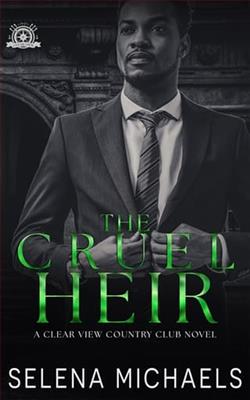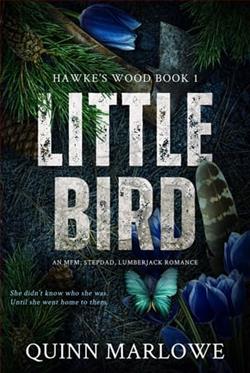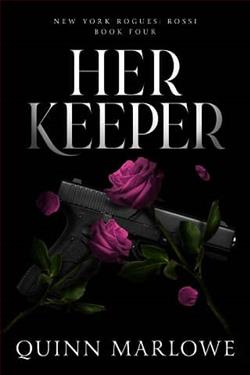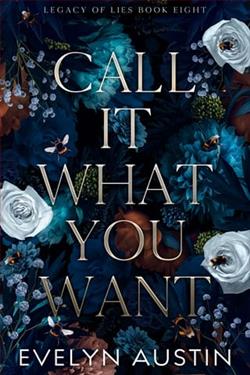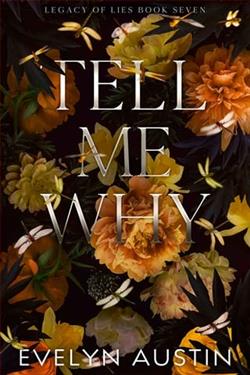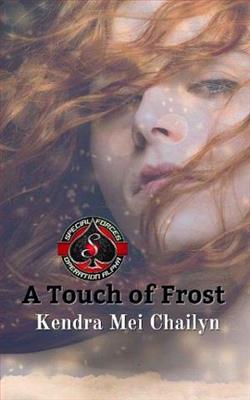Page 76 of The Blood we Crave
I think she might be the only person who never had a predisposition to me. Those who had once only seen me as a removed child had quickly changed their view after my father was arrested.
I’d become Ponderosa Springs’ next serial killer. A ticking time bomb of destruction.
Even though he’d deny it, my grandfather saw me differently too. In his defense, he had to in order to keep me from making the same mistakes as my father. If he was going to help me, he needed to see me for what I was.
A cocktail of homicidal tendencies at a young age paired with childhood trauma.
Not her though—she’d always just seen me as Thatcher. Her grandson, who needed to be alone more often than other children, played the piano, and had a keen eye.
May treated me like she would’ve any other grandchild. I often forgot to tell her how much I appreciated that, but I tried my best in the little ways I knew how.
“You used to call me Baba when you were little. Did you know that?” she asks as she walks farther into my room with several letters in her hands.
My eyebrows furrow, scoffing at the idea of me having a nickname for my grandmother. I’d never been an affectionate or loving child.
“Can’t say I do,” I reply, walking to sit on my bed to pull my socks onto my feet. “You sure you don’t have another grandchild you’re thinking about?”
“Your mother used to call me Babushka after you were born. It’s Russian for grandmother. I think it helped her miss home less.” She thumbs through the stack of mail, “You obviously couldn’t pronounce that at your age, so you stuck with Baba.”
It could’ve been entirely possible, but my mind won’t let me travel that far back in my memories. Everything before her death had a thick fog covering it, a haze that made it hard to remember much of anything other than what I’d been told.
“Are you visiting me to request I call you Baba again? Unfortunately, May, I think you may have traveled from your wing of the house to be disappointed,” I say with a light tone, enough to let her know I’m joking but that I also won’t ever be calling her that again.
She rolls her eyes at me, but there is a gentle smile painting her lips. She drops the mail beside me, and I glance over at the small stack of letters. When I lean up, I find her standing in front of me.
“I came to drop off your mail.” She hums, looking at it. “He wrote.”
I know whoheis already. I’d been expecting it, and I don’t need to hear her say it to know it’s from my father.
I sigh. “He always does.”
Every one I get, I read through briefly, scanning the neat handwriting that details his day-to-day life inside solitary confinement. The unanswered questions he always asks, constantly wondering what I am doing and where I am.
Once I’m finished, I crumple it up and toss it into the trash. Every single one.
I know the only reason he does it is out of hope. That one day I will reply and come crawling back for his praise. He wants me to engage with him so that he can see what his legacy has done. For me to fuel his already enormous ego by showing him I have continued killing in his name.
The only reason I keep reading is the power trip I get from them, knowing I’m the one in control, his connection to the outside world. He desperately needs me to feed his need to kill, and I never give it to him.
I’m the one in charge now. I have the power, and I’ll die before giving it back.
“You’re not him. You know that, don’t you?” The feeling of her fingers brushing my wet hair out of my face makes me cringe.
It’s not a malicious touch, just a grandmother showing affection for her grandson, and because of the respect I have for her, I let her do it without complaint.
Even though I hate it.
With ease, she places two fingers beneath my chin, lifting my face so that I’m looking at her.
“Don’t you?”
I believe in eye contact. It’s a nonverbal social cue that projects confidence, high self-esteem, and assertiveness. It can intimidate people into submission if done correctly. The subtle art of showing people you are secure in yourself and do not fear what they might see when they look into your eyes.
I don’t believe in eye contact with May.
There is this constant sadness inside them, a constant sheet of tears over her eyes from the misery she lives with. I don’t want to make that worse by letting her see what I have become.
What I let my father make me into.








